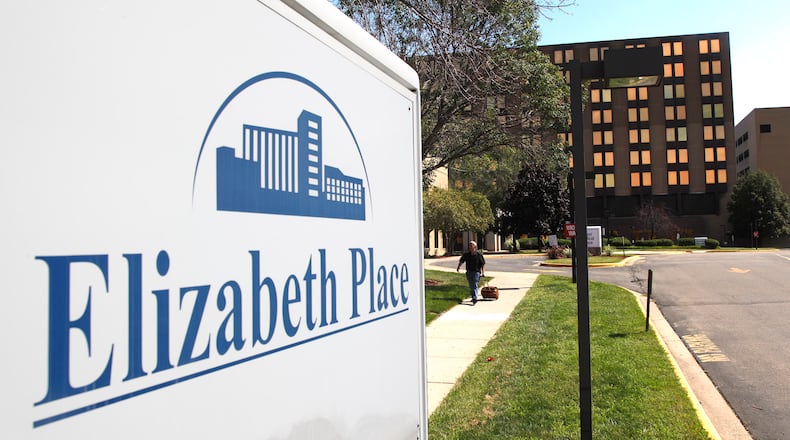The medical center was unable to “increase profitability or cash flow” to continue operating, according to a letter from Medical Center at Elizabeth Place treasurer Steve Chavez to employees. Chavez also is an executive with Kettering Health, which owned a 50% stake in the medical center.
“The hospital was a tremendous medical success, but a financial failure,” said chairman of the Medical Center at Elizabeth Place board Dr. John Fleishman. “But I would do it all again. The staff is fabulous and they love the place. They stuck with us through thick and thin — and there wasn’t much thick.”
The former St. Elizabeth’s hospital, which closed in 2000, was brought back to life with the help of Medical Center at Elizabeth Place in 2006. The medical center has a significant presence in the building, but is not the only business that operates on the campus. The medical campus has a number of provider offices and other tenants that will remain open.
Until recently it was home to Wright State’s psychiatric program, which just moved out to be closer to WSU’s main campus.
MORE: Small Dayton hospital could go out of business
“Ultimately our inability to achieve contract parity with our competitors led to (Medical Center at Elizabeth Place) becoming insolvent. It is nothing short of a miracle that we have survived for almost a decade and a half,” Fleishman said.
The center lost its hospital status in January 2019 for several months because the 12-bed facility sometimes had too low of a volume of patients admitted to count as a hospital under federal standards. By losing the status, the hospital was no longer able to bill Medicare and Medicaid.
With about 60 to 65 percent of its patients covered by Medicare or Medicaid, hospital leaders said this threatened the hospital’s ability to stay in business.
While Medicaid and Medicare typically pay less than commercial insurance, the majority of hospital patients are covered by the two public health insurance programs. On average, about 74 percent of Dayton-area hospital patients are covered by either Medicare or Medicaid.
Kettering Health declined to comment on the closure. Elizabeth Place partnered with Kettering Health in order to get access to insurance contracts.
While a relatively small hospital in Dayton — with about $55 million to $60 million in annual gross revenue — Medical Center at Elizabeth Place made headlines in 2012 when it filed a suit claiming the four Premier Health hospitals were conspiring against competition in a way that violated anti-trust law.
The hospital accused Premier’s hospitals of orchestrating an illegal boycott against it by blocking it from getting in-network insurance contracts and blocking physicians from affiliating with the hospital or referring patients to it.
The anti-trust lawsuit carried on for years and each time the courts ruled in favor of Premier Health.
During the case, a panel of judges wrote “there’s no room for doubt” that Premier felt threatened by Elizabeth Place and worked to keep it from opening and then when it opened worked to keep the small hospital from getting patients and insurance contracts. However, Elizabeth Place lost the case and was then sued for massive court costs by Premier.
The U.S. Supreme Court declined in October to hear Elizabeth Place’s anti-trust lawsuit.
In response to the medical center’s closing, a Premier Health spokesperson said: “Premier remains committed to working with physicians and other healthcare providers in the provision of healthcare to the entire community. As to the litigation, the U.S. Supreme Court agreed with lower courts and declined to review this case. Premier Health and its hospitals act in accordance with the law, including anti-trust laws. Our handling of our interactions with the Medical Center of Elizabeth Place was no different and was consistent with our values.”
RELATED: Supreme Court declines to hear anti-trust case against Premier Health
Fleishman said the medical center’s goal was to provide the best possible clinical experience at competitive prices.
“We were more than successful at meeting those goals,” Fleishman said.
Fleishman said the doctors and staff who fought “so long and hard” to keep the small hospital open are heartbroken that the facility will be shutting down.
“On behalf of MCEP and all its members, we deeply regret that we have to make this decision and appreciate all of the good work you have done during your employment,” Chavez said in the letter.
The letter to medical center employee says they will be paid for all work through Friday, including unused paid time off.
RELATED: Appeals court rules for Premier Health in anti-trust lawsuit
About the Author


